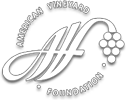Host Selection Behavior and Improved Detection For Glassy-Winged Sharpshooter, Homalodisca coagulate (Say)
Leafhopper vectors of Xylella fastidiosa (including GWSS) behave very differently than most herbivorous insects. GWSS has evolved many unusual adaptations that enable subsistence on xylem fluid. Adult GWSS may feed on hundreds of different host species, are long lived and exceptionally mobile and fecund. Nutrition affects GWSS female fecundity and longevity and malnutrition is a primary source of mortality of immatures. We have established that adults prefer to feed on xylem fluid with specific chemical characteristics (high amide concentrations). Nymphs develop more successfully on xylem fluid with low amide concentrations and proportionally higher concentrations of many of the more dilute amino acids that are deemed essential for the development of most insects. We have also established the physiological basis for this phenomenon: adults can efficiently use nitrogen and carbon from high amide concentrations, whereas young developing nymphs cannot. Given the pivotal status of host plant nutrition on GWSS behavior we examined GWSS behavior and that of its parasitoids in field and laboratory experiments to elucidate the underlying mechanisms. We determined GWSS response in feeding and oviposition to host plant species of different quality in the field by varying plant spatial patterns. We determined that previous GWSS host use affects present host use and future longevity. We found that the relative quantity/frequency of a plant species in the landscape does not influence GWSS oviposition preference in the field. We found that GWSS feed in differential numbers on Vitis spp. and selected cultivars. New predators of eggs (tree crickets) were identified. The behavior of parasites in parasitism of GWSS eggs was found not to be related to host plant species or frequency of availability. We determined that parasites can overwinter in GWSS eggs and that they can successfully parasitize eggs up to 1-2 days before nymphal emergence.

